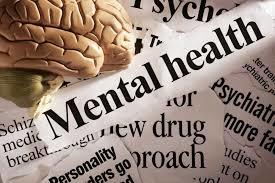Types of mental health problems

Types of mental health problems
If you’ve been diagnosed with a mental health problem you might be looking for information on your diagnosis, treatment options and where to go for support. Our information pages will help you learn more.
Anger
Explains what anger is, and how to deal with it in a constructive and healthy way.
Anxiety and panic attacks
Explains anxiety and panic attacks, including possible causes and how you can access treatment and support. Includes tips for helping yourself, and guidance for friends and family.
Bipolar disorder
Explains what bipolar disorder is, what kinds of treatment are available, and how you can help yourself cope. Also provides guidance on what friends and family can do to help.
Body dysmorphic disorder (BDD)
Explains body dysmorphic disorder, including possible causes and how you can access treatment and support. Includes tips for helping yourself, and guidance for friends and family.
Borderline personality disorder (BPD)
Explains what BPD is and what it’s like to live with this diagnosis. Also provides information about self-care, treatment and recovery, and gives guidance on how friends and family can help.
Depression
Explains depression, including possible causes and how you can access treatment and support. Includes tips for helping yourself, and guidance for friends and family.
Dissociation and dissociative disorders
Explains dissociative disorders, including possible causes and how you can access treatment and support. Includes tips for helping yourself, and guidance for friends and family.
Drugs - recreational drugs & alcohol
Explains the mental health effects of recreational drugs and alcohol, and what might happen if you use recreational drugs and also have a mental health problem. Includes suggestions for where you might find support.
Eating problems
Explains eating problems, including possible causes and how you can access treatment and support. Includes tips for helping yourself, and guidance for friends and family.
Hearing voices
Explains what it is like to hear voices, where to go for help if you need it, and what others can do to support someone who is struggling with hearing voices.
Hoarding
Explains hoarding, including possible causes and how you can access treatment and support. Includes tips for helping yourself, and guidance for friends and family.
Hypomania and mania
Explains hypomania and mania, including possible causes and how you can access treatment and support. Includes tips for helping yourself, and guidance for friends and family.
Loneliness
Explains loneliness, giving practical suggestions for what you can do and where you can go for support.
Mental health problems - introduction
Explains what mental health problems are, what may cause them, and the many different kinds of help, treatment and support that are available. Also provides guidance on where to find more information, and tips for friends and family.
Obsessive-compulsive disorder (OCD)
Explains obsessive-compulsive disorder (OCD), including possible causes and how you can access treatment and support. Includes tips for helping yourself, and guidance for friends and family.
Panic attacks
Explains what panic attacks are, including possible causes and how you can access treatment and support. Includes tips for helping yourself, and guidance for friends and family.
Paranoia
Explains paranoia, including possible causes and how you can access treatment and support. Includes tips for helping yourself, and guidance for friends and family.
Personality disorders
Explains personality disorders, including possible causes and how you can access treatment and support.
Phobias
Explains phobias, including possible causes and how you can access treatment and support. Includes tips for helping yourself, and guidance for friends and family.
Postnatal depression & perinatal mental health
Explains postnatal depression and other perinatal mental health issues, including possible causes, sources of treatment and support. Also gives advice for friends and family.
Post-traumatic stress disorder (PTSD)
Explains what post-traumatic stress disorder (PTSD) and complex PTSD are, and provides information on how you can access treatment and support. Includes self-care tips and guidance for friends and family.
Premenstrual dysphoric disorder (PMDD)
Explains what PMDD is and explores issues around getting a diagnosis. Also provides information on self care and treatment options, and how friends and family can help.
Psychosis
Explains what psychosis is, including possible causes and how you can access treatment and support. Includes tips for helping yourself, and guidance for friends and family.
Schizoaffective disorder
Explains what schizoaffective disorder is, including its symptoms and causes. Gives advice on how you can help yourself and what types of treatment and support are available, as well as guidance for friends and family.
Schizophrenia
Explains schizophrenia, including possible causes and how you can access treatment and support. Includes tips for helping yourself, and guidance for friends and family.
Seasonal affective disorder (SAD)
Explains seasonal affective disorder, including possible causes and how you can access treatment and support. Includes tips for helping yourself, and guidance for friends and family.
Self-esteem
Explains how to increase your self-esteem, giving practical suggestions for what you can do and where you can go for support.
Self-harm
Explains self-harm, including possible causes and how you can access treatment and support. Includes tips for helping yourself, and guidance for friends and family.
Sleep problems
Explains insomnia and other sleep problems, giving practical suggestions for what you can do and where you can go for support.
Stress
Explains what stress is, what might cause it and how it can affect you. Includes information about ways you can help yourself and how to get support.
Suicidal feelings
Explains what suicidal feelings are, including possible causes and how you can learn to cope.
Tardive dyskinesia
Explains what tardive dyskinesia is, what causes it and what you can do to manage it.
Trauma
Explains what trauma is and how it affects your mental health, including how you can help yourself, what treatments are available and how to overcome barriers to getting the right support. Also includes tips for people who want to support someone who has gone through trauma.